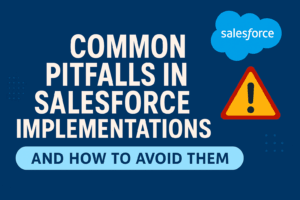BLOG
TikTok Privacy & the Future of Video Content
Are you concerned about your company’s privacy on TikTok?
We get it. The platform has come under heavy fire in recent months for its shadowy data collection practices, as well as its potential ownership connections to the Chinese government.
As the app continues to grow in popularity and gather more and more avid users, many are concerned about the privacy and security of their data. But it’s not all grim — and if TikTok experiences a downfall anytime soon, it certainly won’t mean the end of video content.
Let’s explore TikTok’s privacy policy, data collection practices, user concerns, and what it all means for your video content.
TikTok’s privacy policy and data collection practices
TikTok’s privacy policy outlines the data the app collects from its users. It collects basic user information such as name, age, and email address, as well as device information such as IP address, device type, and operating system. Additionally, TikTok collects information on user activity such as the videos users watch, the hashtags they follow, and the content they create — meaning it learns what its users like, and very quickly.
TikTok uses this data to personalise the app’s content for users, improve performance, and serve targeted ads. The app also shares user data with third-party vendors for analytics and advertising purposes.
So, what’s the problem?
Image source: The Guardian
Many are concerned about TikTok’s data privacy and security. The app is owned by the Chinese company ByteDance, which has raised concerns about the Chinese government’s access to user data.
In 2019, TikTok was fined $5.7 million by the Federal Trade Commission for collecting data on children under the age of 13 without parental consent.
In July 2020, TikTok was also caught accessing users’ clipboard data on iOS devices without user consent. This raised concerns about what other data the app was accessing without user knowledge.
In 2022 and 2023, the United States government launched a Congressional hearing into these ongoing safety concerns and the leaking of data to Chinese authorities. TikTok’s CEO, Shou Zi Chew, faced tough questioning from lawmakers, but ultimately not much was achieved beyond a proposed ban on TikTok and an American review of the app’s security practices.
How has TikTok responded to these concerns?
TikTok has responded to privacy concerns by updating its privacy policy and increasing transparency around data collection practices. The app now allows users to see what data is being collected and how it is being used.
Additionally, TikTok has announced plans to move its data storage to the United States and increase its transparency with regulators. But experts have still raised concerns about the potential for the app to be used for espionage or other malicious purposes.
TikTok has also added features to help users protect their privacy. The app now allows users to make their accounts private, filter comments, and restrict certain content.
How can users protect their privacy on TikTok?
Image source: The Conversation (Shutterstock)
Users can take several steps to protect their privacy on TikTok.
First, where possible, users should make their accounts private to prevent strangers from seeing their content. Influencers and more public users should be mindful of the information they share in their videos, such as their location or personal information. Third, users should regularly review their app permissions and revoke access to unnecessary data being shared and stored.
As always, it’s also important for users to be cautious of scams and phishing attempts on the app. Users should never share their personal information with strangers, and should report any suspicious activity.
What happens if TikTok is banned in Australia?
Despite all these privacy concerns, if the Congressional hearing is anything to go by, TikTok has taken steps to address these issues, including increased transparency and data security measures. It’s likely that while there are valid concerns about the platform, it’s not inherently more risky than other social media platforms which require and collect similar levels of data.
TikTok is a hugely popular platform for short-form video content, and it’s a goldmine for marketers to capitalise on a highly engaged audience. If TikTok is banned in Australia, it’s important for marketers to recognise that TikTok is just the most popular platform for video content right now — and losing TikTok won’t mean that video content actually disappears.
Video content will continue to be the most engaging way to present content on social media for the foreseeable future, and it doesn’t matter what platform that’s on. If TikTok disappears, that market share for video content will likely migrate back to Instagram; or perhaps we’ll see an emergence of a brand new platform altogether.
Either way, businesses shouldn’t be concerned. And they certainly shouldn’t stop investing in video content creation and UGC, because that’s not going anywhere.
Final thoughts
Image source: Search Engine Land
TikTok is a fun and creative platform for users, but it’s important to be mindful of the privacy concerns that have been gaining traction over the past couple of years.
Users should regularly review their privacy settings and be cautious of scams and phishing attempts on the app. For those concerned about privacy, there are alternatives to TikTok that offer similar features.
But most of all, remember that video content isn’t going anywhere, and it’s the best way to cut through the noise and present your product or service in an engaging way.
Get in touch with us at Social Garden to create killer video content — whether it’s hosted on TikTok, or not.















